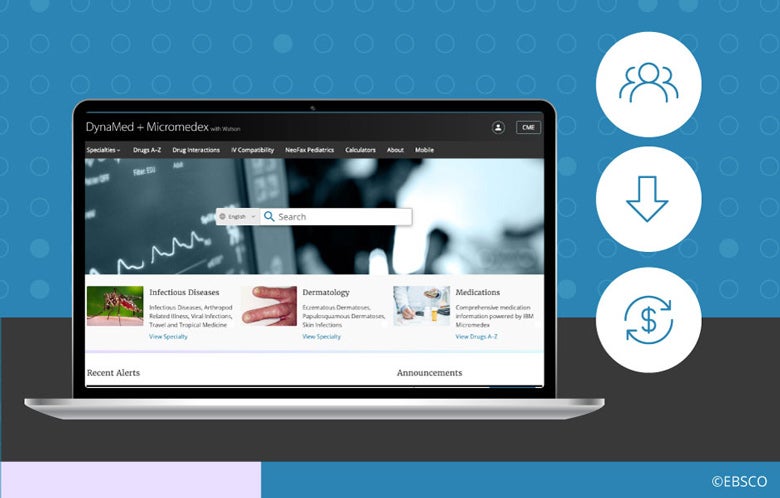Medications play a crucial role in the prevention and treatment of many diseases, but they also have the potential to cause harm if not used correctly. Pharmacists and pharmacy technicians routinely provide an added medications safety net for patients in a variety of ways, from triaging an ever-expanding body of specialized knowledge, to providing information and counseling, to helping coordinate medications during patient transitions and helping to manage access to medications.
Applying Specialized Medication Knowledge
Pharmacists apply their specialized medication knowledge to filter and interpret a large and ever-increasing body of complex knowledge (including guidelines and research studies) to foster the five rights of medication: (1) the right patient (2) gets the right drug, (3) at the right dose, (4) via the right route, and (5) at the right time.
Pharmacists assess each medication to ensure it is the most appropriate, effective, and safe choice for a patient. They consider patient characteristics (such as age, allergies, weight, renal and hepatic function), use of concurrent medications (which may interact) and the presence of concomitant disease(s) (which may preclude the use of a drug) to optimize a patient’s drug regimen.
Some pharmacists may optimize drug therapy through collaborative practice agreements and pharmacy-to-dose protocols for antibiotics (such as vancomycin) or anticoagulants (such as warfarin). With a complex array of patient specific factors, the pharmacist ensures the safe and effective dosing of these medications to protect patient safety. Along with dosing, drug interactions are reviewed; when present, the pharmacist suggests alternative therapy or adjusts dosing to avoid adverse effects.
A special review of high alert medications including additional clinical considerations and monitoring is completed by pharmacists to safeguard medication use. This may include the review of medications with a narrow therapeutic index, critical care medications, anticoagulants, opioids, antithrombotic agents, medications which are “look-a-like” or “sound-a-like”, or those with a high risk of clinically significant adverse effects if there is a medication error.
Additionally, pharmacists play a key role in medication stewardship services. Screening for antibiotic overuse and de-escalation opportunities is performed through antimicrobial stewardship programs to help decrease the development of resistant organisms. Through opioid stewardship and diversion prevention programs, pharmacists assist in preventing opioid misuse and providing appropriate dosing and duration. In these programs, pharmacists work with interdisciplinary teams to recommend alternatives and/or the use of adjunct non-opioid pain medications to minimize opioid exposure.
Medication Information, Counseling, and Education
Pharmacists serve an important role in delivering medication information to the patient in the form of patient education and counseling, as well as to clinicians at the point of care. The appropriate use of medication is vital in the successful treatment and prevention of disease and prevention of adverse effects, which is supported by accurate, timely, and complete medication information.
Pharmacists are trained to counsel patients on medications, both in the inpatient and outpatient setting. In community pharmacies, they are a readily accessible point of contact for patients and can reinforce and improve medication adherence.
Coordination of Care During Patient Transitions
When a patient transitions from one care setting to another (for example, from home to acute care and then home again upon discharge), pharmacists often perform a detailed medication review, often called a medication reconciliation. This process is vital for the prevention of medication errors, such as the accidental discontinuation of a medication or therapeutic duplication. Medication reconciliation also addresses inappropriate polypharmacy, which increases the risk of adverse drug events and is particularly problematic in older patients.
Preserving Patient Access and Ensuring Their Health and Wellness
To make sure patients can afford and obtain prescribed medications, pharmacists often navigate complex insurance and hospital formulary restrictions. As a key part of this, pharmacists manage drug shortages by recommending appropriate alternatives to prescribers and patients and provide formulary support to protect patient access and reduce potential medication errors.
Pharmacists serve as readily available health care professionals for patient health and wellness. Programs such as vaccine administration, blood pressure monitoring, and advice on health supplements and vitamins are important for the safety and wellness of the community.
To sum it up, pharmacists are important members of the healthcare team, working collaboratively with other providers in a variety of care settings. At DynaMed, a team of clinical pharmacists optimize medication content by conducting detailed reviews of medication information to optimize its accuracy, currency, and completeness, further enhancing the safe use of medications at the point of care.
You can count on pharmacists to play a unique and important role in healthcare, always at work to cast a very specialized medication safety net for patients.



